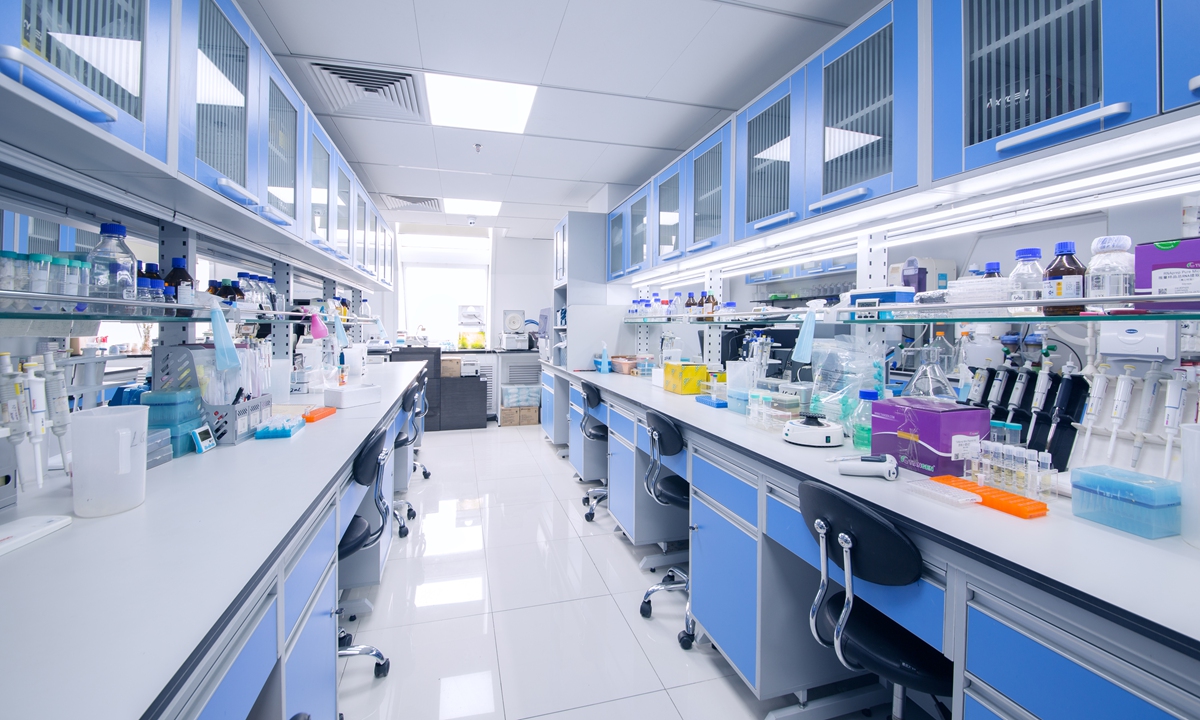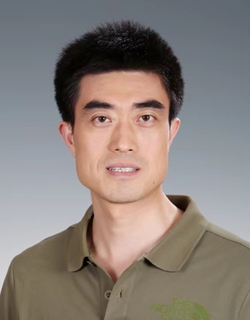
Wei Wensheng's lab Photo: Courtey of Wei Wensheng
Chinese scientists have designed a circular RNA (circRNA) vaccine that is able to induce effective neutralizing antibodies against dominating Omicron variants in animal testing.
Wei Wensheng, a professor at the School of Life Sciences, Peking University, the leader of the team that developed the circRNA vaccine, told the Global Times that the team is preparing the vaccine for clinical trials, including applying for authority approval. "We hope the vaccine could contribute to epidemic control and prevention as soon as possible," Wei said.
During animal experiments, the circRNA vaccine elicited potent neutralizing antibodies and T-cell responses by expressing the trimeric the receptor-binding domain of the spike protein of SAR-CoV-2, the virus that causes COVID-19, providing robust protection against SARS-CoV-2 in both mice and rhesus macaques, read a preprint paper of the results of the experiments published in Cell in late March.
The circRNA vaccine also led to higher and more durable antigen production than linear mRNA vaccines, and elicited a higher proportion of neutralizing antibodies and distinct immune responses, according to the paper.
The spike protein of SAR-CoV-2 has been used as the primary target of mRNA vaccines. But those vaccines with a linear RNA structure tend to miss the target in neutralizing emerging variants.
Compared with the linear mRNAs, circRNAs are reportedly more stable than their linear mRNA counterparts, with the circRNAs having a median half-life at least 2.5 times longer than linear mRNAs in mammalian cells, according to the paper.
Wei's team also found that the circRNARBD-Omicron vaccine induced effective neutralizing antibodies against the Omicron but not the Delta variant.
In contrast, the circRNARBD-Delta vaccine protected against both Delta and Omicron or functioned as a booster after two doses of either native- or Delta-specific vaccination, making it a favorable choice against the current variants of concern (VOCs) of SARS-CoV-2.
Wei suggested the circRNA-Delta vaccine could be developed into broad-spectrum candidate vaccines.
The circRNA vaccine is one of the latest COVID-19 vaccine candidates developed in China that have been revealed as making positive progress recently amid flare-ups in Shanghai and Northeast China's Jilin Province.
Chinese vaccine developer CanSinoBIO announced on Monday that its
COVID-19 mRNA vaccine has received approval for clinical trials in China.
A day earlier, China National Pharmaceutical Group said its second-generation recombinant protein COVID-19 vaccine had received approval for clinical trials.
Chinese experts expect the circRNA developed by Wei's team could serve as a good booster for the vaccine candidates widely used in China.

Photo: Courtey of Wei Wensheng
Wei told the Global Times that their study had showed that the circRNA candidate they developed could significantly enhance the level of neutralizing antibodies in mice who had received two shots of inactivated shots.
The circRNA vaccine is being developed on a circRNA technology platform built by Wei's team. Wei said that, besides vaccines for coronavirus, the platform could also be used to rapidly design vaccines against the flu, or therapies for cancers and genetic diseases.
Wei said that, at the beginning, his team was doing studies on genetic diseases with circRNA technology and saw some positive results, which inspired it to try to design a COVID-19 vaccine with circRNA technology to help ease the widespread pandemic.
Some foreign companies and research teams like US start-up Orna Therapeutics and a team from Singapore have also been reportedly conducting research on circRNA technologies. But none of them so far had put any vaccine or therapeutic candidate based on the technology into human trials.





